
Alpine tax haven fears for its survival
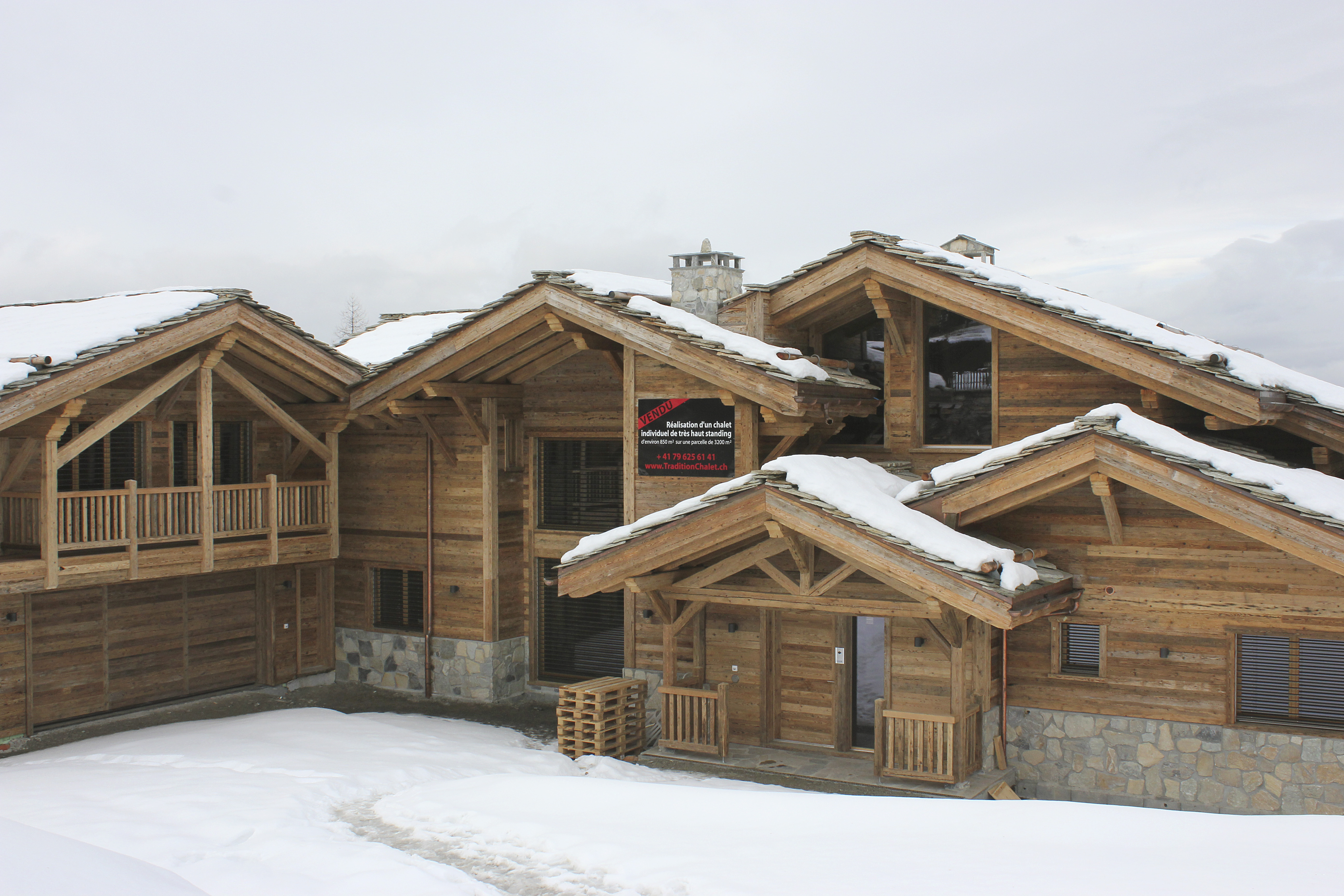
Tensions are rising in canton Valais, pitting the local authorities against citizens over the benefits of urban development versus cultural preservation. The reason? A plan to end lump-sum taxation for wealthy foreigners that will come to a nationwide vote next year.
The historic village of Lens, located on the winding road that links the Rhône Valley to the Crans-Montana ski resort, has somehow managed to hold on to the charm of yesteryear. That’s despite a slew of chalets, each more imposing than the other, which has sprung up in recent years.
Here, cranes dot the skyline as luxury residences sprout like mushrooms, giving the impression of a building boom that has no limits. On one empty lot, a sign announces a “prestigious” 1,000 square metre chalet to be completed by autumn 2015; a bit further down the road, another four individual chalets “of very high standing” are almost completed.
The frenetic pace of building development in the region has not slowed despite the fact that in March 2012, the Swiss voters accepted the Weber initiative to limit construction of secondary residences. Lens long ago passed the limit of 20% so-called “cold beds” imposed by the initiative, boasting an impressive 3,000 secondary residences compared to just 4,000 local inhabitants.
As a result, there’s now a new target clientele: Lens and the five other towns that make up the Crans-Montana resort are competing harder than ever to seduce wealthy foreigners into choosing the area as their primary place of residence.
“We are actively trying to attract these people. I talk to trustees and banks, I invite them [here] so that I can brag about the advantages of our area compared to other destinations like Gstaad or Verbier,” Lens mayor David Bagnoud tells swissinfo.ch.
Aside from the spectacular alpine views, an abundance of sun and numerous sporting and cultural facilities, Bagnoud holds another decisive card for convincing future residents: lump-sum taxation – the tax regime that allows foreigners without a revenue-raising activity in Switzerland to be taxed only according to how much they spend locally, and not on their real income or fortune.
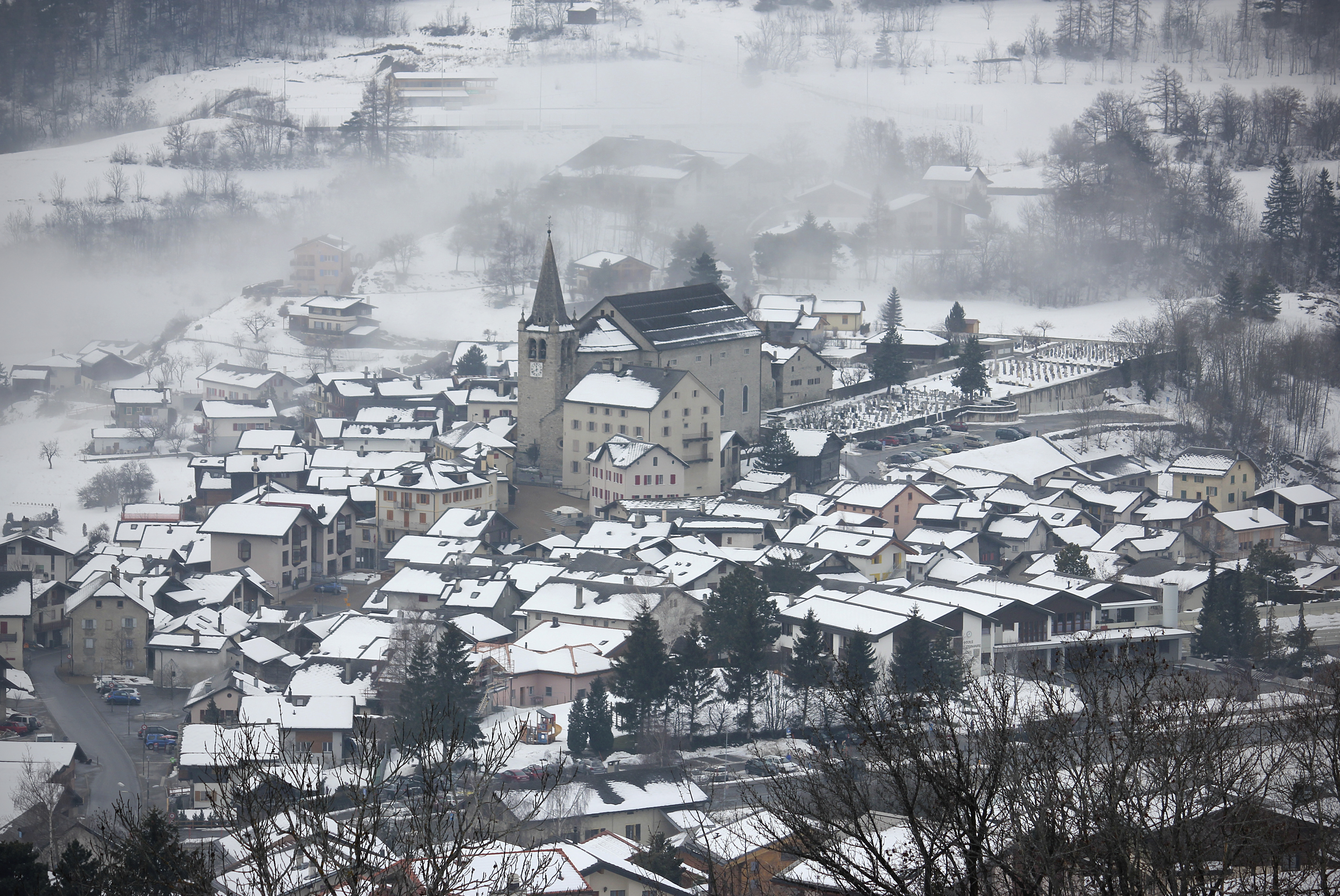
More
Authenticity vs luxury
Filling the coffers
“Each year we register about ten new arrivals, versus five or six departures. So there are more than 200 people who benefit from lump-sum taxation – a majority of whom are European – who live in our town, [and] around 500 for the whole of Crans-Montana,” says Bagnoud.
With 1,274 such residents at the end of 2012, Valais – after Vaud – is the canton that plays this tax card. It is also the canton that has experienced the largest increase in such taxation over the last 15 years – in 1999, there were just 500 “exceptional” taxpayers in Valais.
The effect on the canton and its villages is obvious: each year, wealthy foreigners add some CHF82.2 million ($92.2 million) to the public coffers. That’s 4.35% of total personal tax revenues, says Beda Albrecht, head of the Valais tax office. The town of Lens alone collects CHF5 million.
“This amounts to about 70% of our annual investments. So these taxes are essential for a tourist town like ours which has a large park and infrastructure to maintain: mechanical ski lifts, swimming centre, ice skating rinks and so on,” argues Bagnoud.
Nevertheless, this time-tested system is now in danger. Lump-sum taxation is the most contested method of taxation abroad, notably in neighbouring France where tax exiles are often accused of being unpatriotic.
In 2012, the Organisation of Economic Co-operation and Development (OECD) called on Switzerland to end lump-sum taxation. But the coup de grâce could come from within Switzerland itself. Next year, the Swiss will vote on an initiative put forward by politically left-leaning groups that calls for the abolition of lump-sum taxation across the entire country. Five German-speaking cantons have already abolished it in recent years: Zurich, Basel City, Basel Country, Schaffhausen and Appenzell Outer Rhodes.
The system of lump-sum taxation is based on the lifestyle and spending habits of the taxpayer in Switzerland and not on actual income or personal fortune. It applies only to foreigners who do not engage in a gainful activity in Switzerland. Athletes and artists may also benefit from the system.
In 2012, the Swiss parliament decided to toughen the conditions for lump-sum taxation. The minimum expenditure taken into account for cantonal and federal taxes is now seven times the rent or rental value of housing and only people with an annual revenue of at least CHF400,000 ($448,581) can benefit from lump-sum taxation as it applies to direct federal taxes.
Concretely, a foreigner who buys an apartment in Switzerland which has a monthly rental value of CHF5,000 will be taxed, at the same rate as other taxpayers, on a revenue of CHF420,000 (5,000 x 12 months x 7). The value of other purchased items such as cars or private planes is also added to that amount.
Imposing limits
In Lens, the concern is palpable. Many of the wealthy expatriates are already thinking about leaving Switzerland or have taken measures that would allow them to leave quickly should the Swiss vote “yes”, according to Daniel Emery, director of the Crans-Montana-based Fidag Trust.
“These people, especially the most comfortable among them, are very mobile. And the international competition is fierce: Portugal or Britain for example, offer similar, very favourable tax regimes,” says Emery.
Emery worries not only about eventual loss of tax revenues but also about the effect such a scenario would have on the local economy.
“Spending by these wealthy expatriates is essential to maintain the station of Crans-Montana, which is already in trouble because of the strong franc,” he says.
Bagnoud says lump-sum taxation benefits everybody and a large majority of citizens will be in favour of keeping it.
But in the village itself, opinions are not always as unanimous as the authorities would like to believe. Several locals, who did not wish to be named, told swissinfo.ch of their concerns.
“I don’t want to come across as the black sheep of the village,” said one. “[But I’m] opposed to lump-sum taxation for reasons of equality [and also] to protect our heritage. These monstrous chalets bear witness to the radical development of our town. There are no limits. The more they build the better it is [and] they have never thought about the concept of ideal size. It is the businessmen and real estate agents that run the villages of Crans Montana. They think only about the short term, always with the aim of making more money. It’s quite simply maddening.”
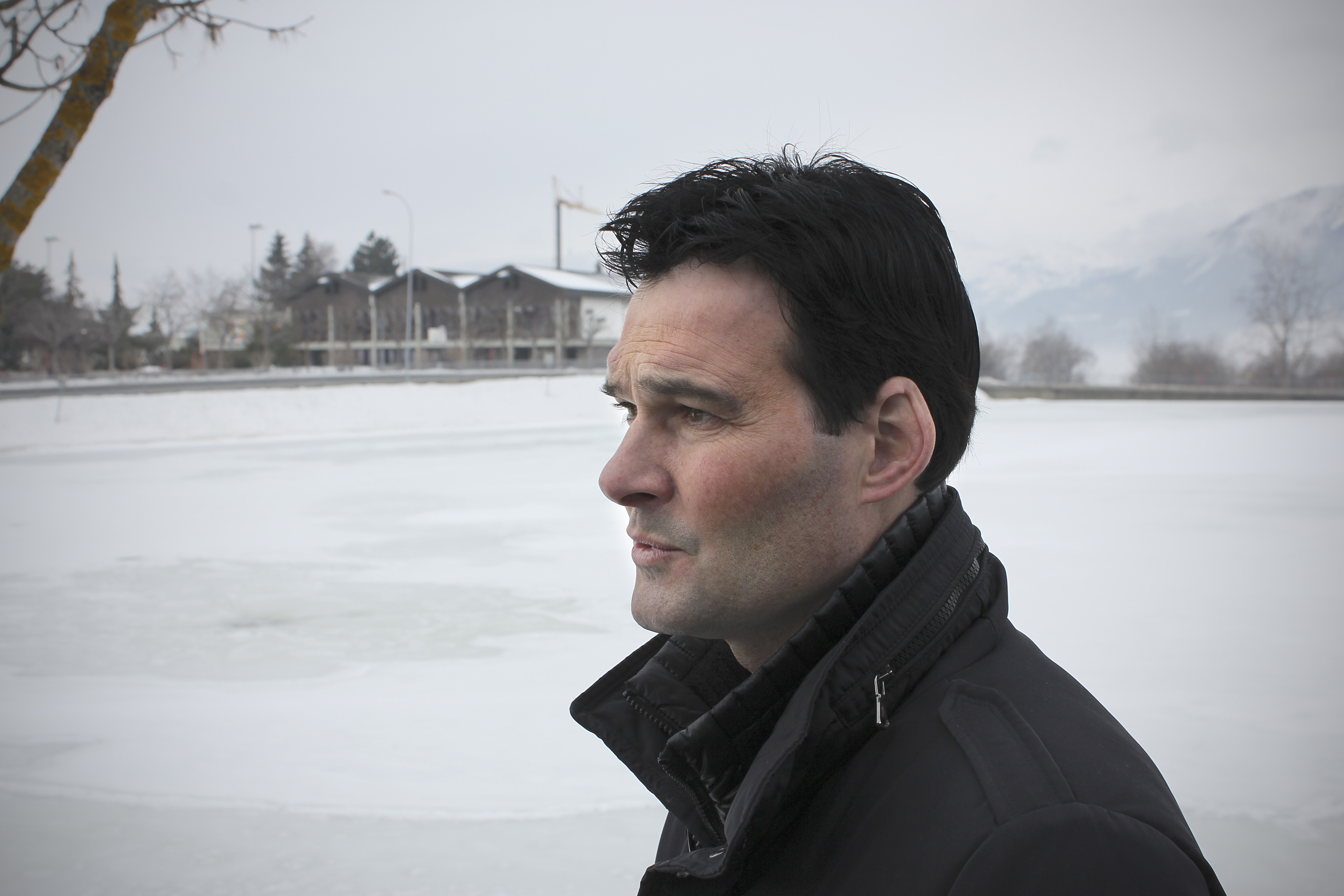
“Taboo” subject
Another local deplores the atmosphere that has developed around the debate.
“The citizens are gagged. The tensions are even stronger since the Weber initiative to modify the town planning laws was accepted. Whenever we take a strong, open position, the local authorities make their feelings known: they say we are idealists, that we want to return to the previous century. Here we think that it’s always someone else’s fault and we refuse to think about our own mistakes.”
Bagnoud admits that the locals might feel a certain pressure.
“But it’s economic,” he argues. “Without this godsend, it will be the locals who will have to pay up and give up several advantages.”
At the Café des Amis, owner Claude Ferrier, a Frenchman who moved to the region in 1986, says the subject “is taboo” during discussions around evening aperitifs. Ferrier, however, does not hesitate to make his feelings known.
“Lump-sum taxation benefits Mr Bagnoud and the town, but not the business owners of the village. Not one of these rich foreigners has ever crossed the threshold of my business. And I can tell you that it’s the price of land and buildings that have exploded and my daughters are unable to find a place to live in Lens.”
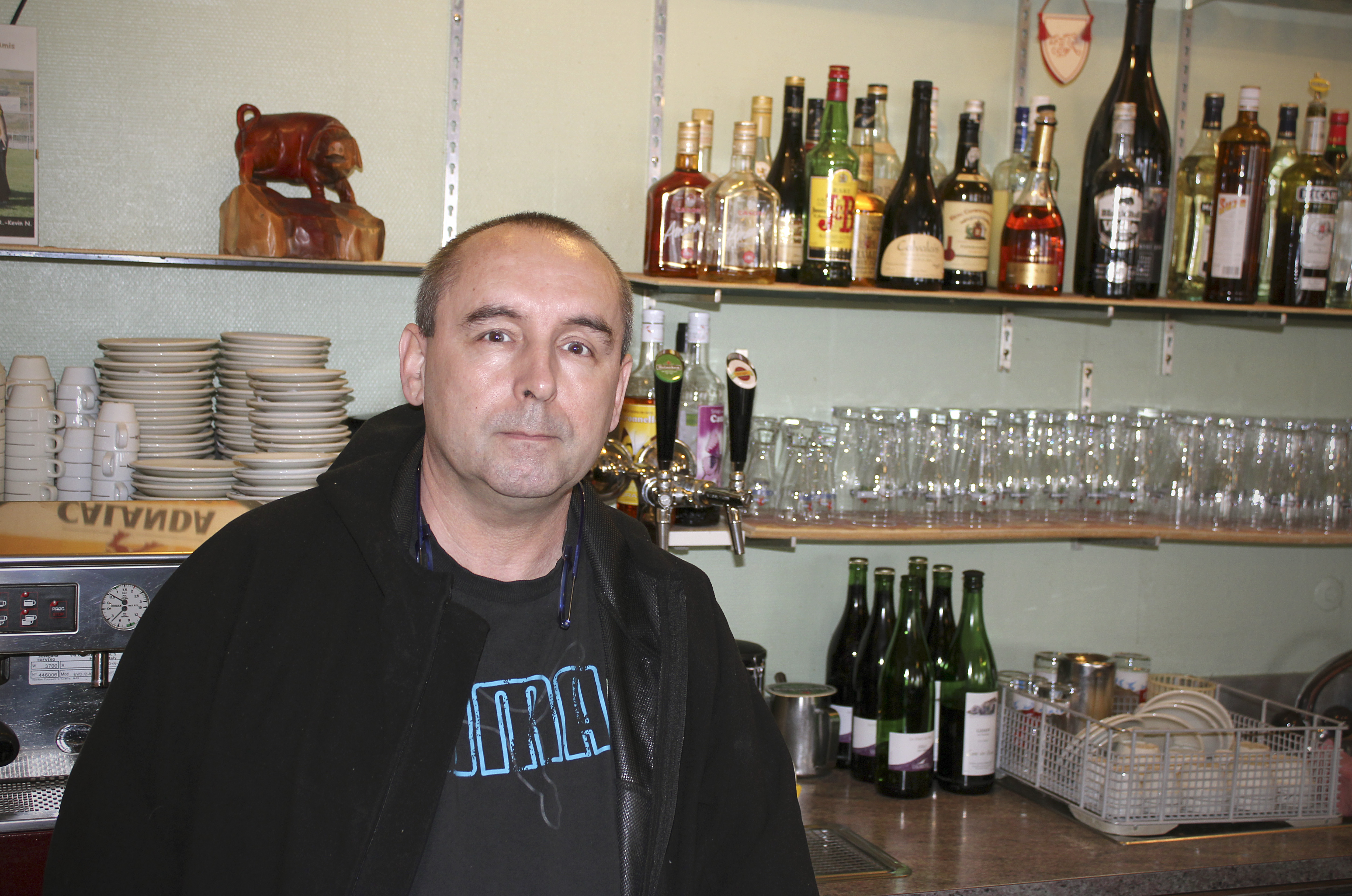
When we ask him about former tennis players Amélie Mauresmo and Fabrice Santoro, two of his famous compatriots who now also live in Lens, Ferrier smiles: “Here, no one has ever seen them. I sincerely doubt they live here six months of the year.”
It’s up to the local authorities to verify if those benefiting from lump-sum taxation live in the town for more than half the year, as required by the law. Bagnoud hints that checks are not particularly onerous.
“We know the people; the majority are retired and play perfectly by the rules. But I can’t tell you for sure that there are not a few dodgers. As for Mauresmo, she knows the rules. But as she is still young, she is busy and travels a lot.”
Contacted through her foundation, the former French professional tennis player did not respond to requests for an interview from swissinfo.ch.
Cultural benefits
Rather than argue, the mayor of Lens prefers to show us the local amenities that were made possible thanks to lump-sum taxation. Among them is the Pierre Arnaud Foundation, a recently inaugurated arts centre located two minutes from the old town centre and described as a major cultural and touristic attraction for canton Valais. Overlooking a small lake, the impressive glass building cost CHF14.5 million, including CHF1 million in local grants.
Wealthy tax exiles also contributed to the financing of the project.
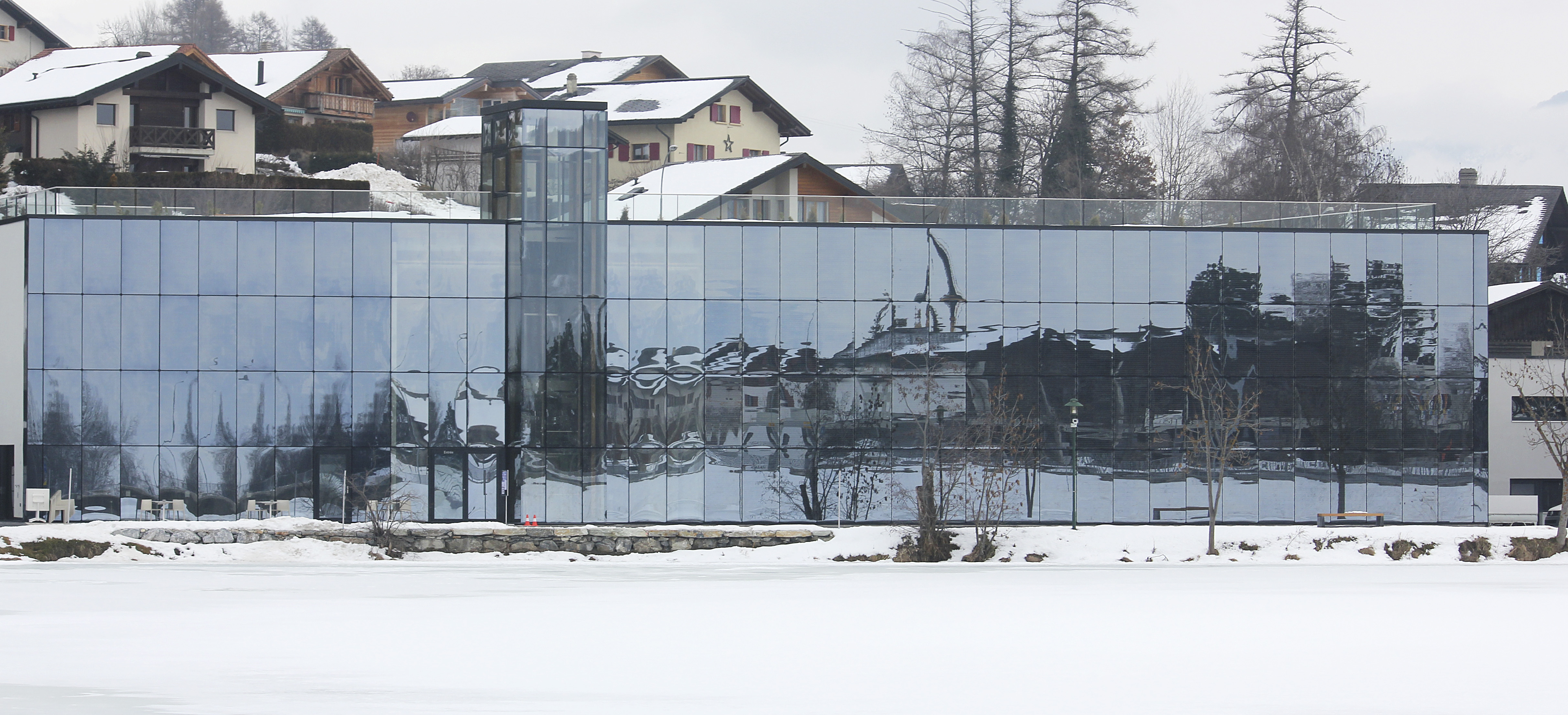
“They obviously make up part of our clientele,” says Véronique Nanchen, one of the foundation’s directors. “These people, who used to live in the large financial and cultural centres, are happy to have a cultural institution of this quality in the region.”
Of course, says Nanchen, certain Lens residents “don’t like it when their routines are upset”, but a large majority of them welcomed the inauguration of the cultural centre two months ago “with an abundance of enthusiasm and stars in their eyes”.
“It’s a dynamic town, it has known how to hold on to its businesses while at the same time offering an exceptional quality of life to the foreigners it welcomes,” she adds.
Another project on a similar scale is an English language international school which is due to open its doors in two years’ time. The project was unanimously agreed upon, with one abstention, by the 202 citizens who participated in the local assembly on October 16, 2013.
“Lens has developed enormously over the last few years and we’re not going to complain about it,” says another local. “But what will happen to all these luxurious chalets and mega-projects if lump-sum taxation is abolished? There has been a complete lack of vision and anticipation on the part of the authorities, who have also neglected the rural economy to the sole detriment of tourism.”
Twenty years ago, Lens still had about 20 local farms.
“The last of them will soon cease activity,” Bagnoud offers as a parting thought.
Pushed by political parties on the left, a popular initiative aiming to eliminate lump-sum taxation was lodged in October 2012. Titled “End tax privileges for millionaires”, it is currently being examined by parliament before being put to the people for a vote.
In the Senate, which has already noted its objection to the text, a majority on the political right think that lump-sum taxation has been very advantageous for the Swiss economy and that it has been a sign of healthy federalism.
On the left, parliamentarians criticised lump-sum taxation as being unfair to Swiss taxpayers who cannot benefit from the same regime, and the opaque manner in which the cantons apply the system.
(Translated from French by Sophie Douez)

In compliance with the JTI standards
More: SWI swissinfo.ch certified by the Journalism Trust Initiative





























You can find an overview of ongoing debates with our journalists here . Please join us!
If you want to start a conversation about a topic raised in this article or want to report factual errors, email us at english@swissinfo.ch.